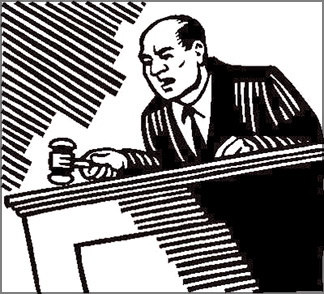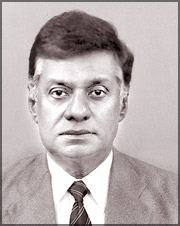Litigation and mediation
Justice L K Wimalachandra - Former Judge of
the Court of Appeal
Mediator must break the dispute into manageable
parts and encourage the parties to settle each part rather than taking
on the entire dispute. He must get the parties to agree on the simple
issues first and postpone complicated issues to be taken up at a later
stage. It is also desirable for the mediator to have private meetings
with each party to diffuse tension. Once the parties have agreed on a
solution an agreement can be entered
Litigation process causes long delays in resolving a dispute and it
can be damaging to future business relations. The legal proceedings have
advantages but some parties believe that the ultimate outcome will
outweigh these advantages. As a result, alternative dispute resolution
mechanisms, mediation in particular, may be a better alternative.

Alternative dispute resolution or ADR is not a new concept in Sri
Lanka. In ancient Sri Lanka, highly influenced by the Buddhist
philosophy and the concept of justice found in the Buddhist principles,
a dispute resolution process was in existence in the villages.
This was mainly a form of mediation, where persons in dispute would
bring the dispute before the Chief Buddhist priest of the village
temple, who was expected to use his knowledge on Buddhist philosophy and
the inflexible law of nature in assisting the parties to find a solution
to their dispute. In some instances the dispute was brought before the
elders of the village and discussed with them to bring about a
settlement. In this respect, the Gamsabhawa or Village Council, which
existed in the ancient Sinhalese Kingdom, engaged in the peaceful
settlement of minor disputes among villagers.
The Gamsabhawa as existed in the Kandyan Kingdom in its last days is
considered to have “...consisted of an assembly of the principal and
experienced men of the village who met at an ambalama (a village
resting-place for travellers) or a shady tree, or other central place
upon the occurrence of any civil or criminal matter, such as dispute
regarding limits, debts, petty thefts, quarrels etc and after inquiring
into the case, settled it, if possible amicably, by declaring which
party was in fault, by adjudging restitution and compensation, or by
dismissing with reproof and admonition - their endeavours being directed
generally to compromise and not to punishment.”
It can be seen thus, under the aforesaid mechanism, due to its
voluntary nature, both parties undertook the responsibility for
resolving their own disputes. This ancient system of ADR promoted peace
and harmony and facilitated the growth of the economy at the village
level bringing the people together, and thereby promoting social
stability. As such, alternative mechanisms for dispute resolution are
not a new phenomenon, which has been in existence and has flourished for
many years in Sri Lanka.
|

Justice L K Wimalachandra |
Most developed countries now prefer ADR to court litigation. In
recent years, there has been worldwide recognition of the fact that
litigation is not necessarily the only, or even the best way of
resolving disputes.
Mediation
Mediation is a process where a neutral intermediary, a mediator,
initiates a process to assist the parties to arrive at a negotiated
settlement. However the mediator has no power to impose a settlement on
the parties. The mediator’s aim is to help the parties reach an amicable
settlement. Mediation gives an opportunity for the parties to discuss
the issues, resolve misunderstandings and find solutions to their
disputes. The mediator does not act as a judge to decide rights and
wrongs but as a catalyst for better communication and to assist the
parties to arrive at an informed and well-considered solution.
It is the duty of the mediator to reassure the parties on their
choice of the mediation as an alternative for dispute resolution. He
must explain the process and help the parties to develop confidence in
achieving success through mediation. The mediator must encourage both
parties to acknowledge that they understand each other’s concerns to
arrive at an amicable solution.
The impartiality and neutrality of the mediator are prerequisites to
mediation. The mediator must show his impartiality by his behaviour at
every stage of the mediation process.
An experienced mediator must break the dispute into manageable parts
and encourage the parties to settle each part rather than taking on the
entire dispute. He must get the parties to agree on the simple issues
first and postpone complicated issues to be taken up at a later stage.
It is also desirable for the mediator to have private meetings with
each party to diffuse tension. Once the parties have agreed on a
solution an agreement can be entered into. The agreement is enforced not
through external intervention or compulsion but through the will of the
parties as it has been a voluntary process and the solution is theirs
and not one imposed upon them by a third party.
Positive aspects of mediation
In litigation, the Judge decides the issues for the parties. In
mediation, however the parties make decisions for themselves. People are
more likely to comply with decisions reached by themselves as opposed to
determinations made by a Judge after trial. A determination made by a
Judge requires further legal proceedings such as execution of the
decree.
Moreover there is always a possibility that the losing party may
appeal against the determination of the Judge to a higher forum.
Mediation in this regard has a greater sense of finality as the solution
is consented and voluntary rather than being imposed upon the parties.
The mediation process lasts few days and the costs are relatively
smaller.
The mediation process is appreciated by Judges mainly for the reason
that cases are resolved more quickly and are less likely to require
further judicial attention and thus reduces the workload.
Unlike litigation, which often strains the relationship, mediation
can help to ensure the continuity of relationship, which is particularly
important in the case of a divorced couple who will be co-parenting
their children or in a situation where the parties to an important long
term commercial transaction attempting to resolve a minor disagreement
which arises during the transaction.
To be continued
|



